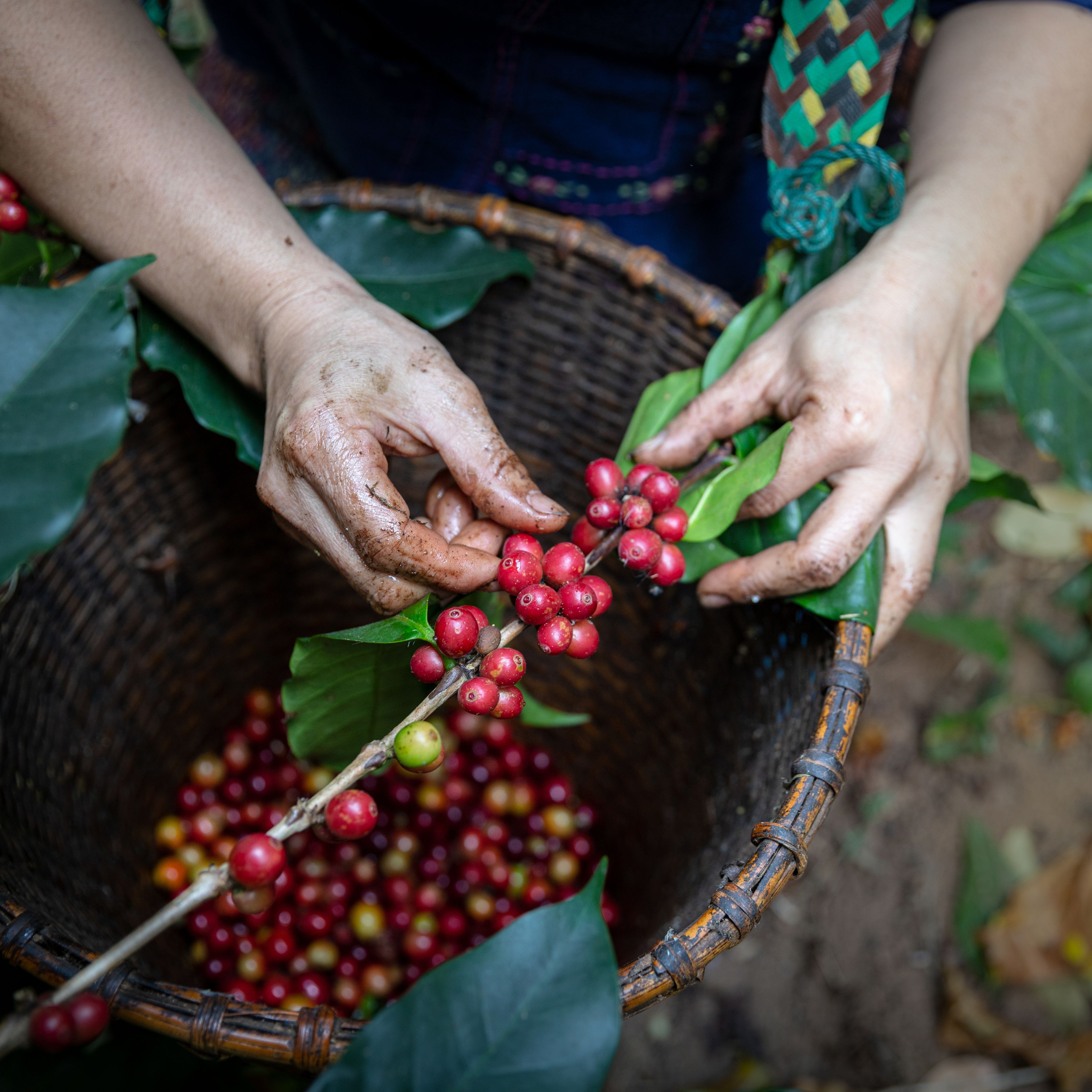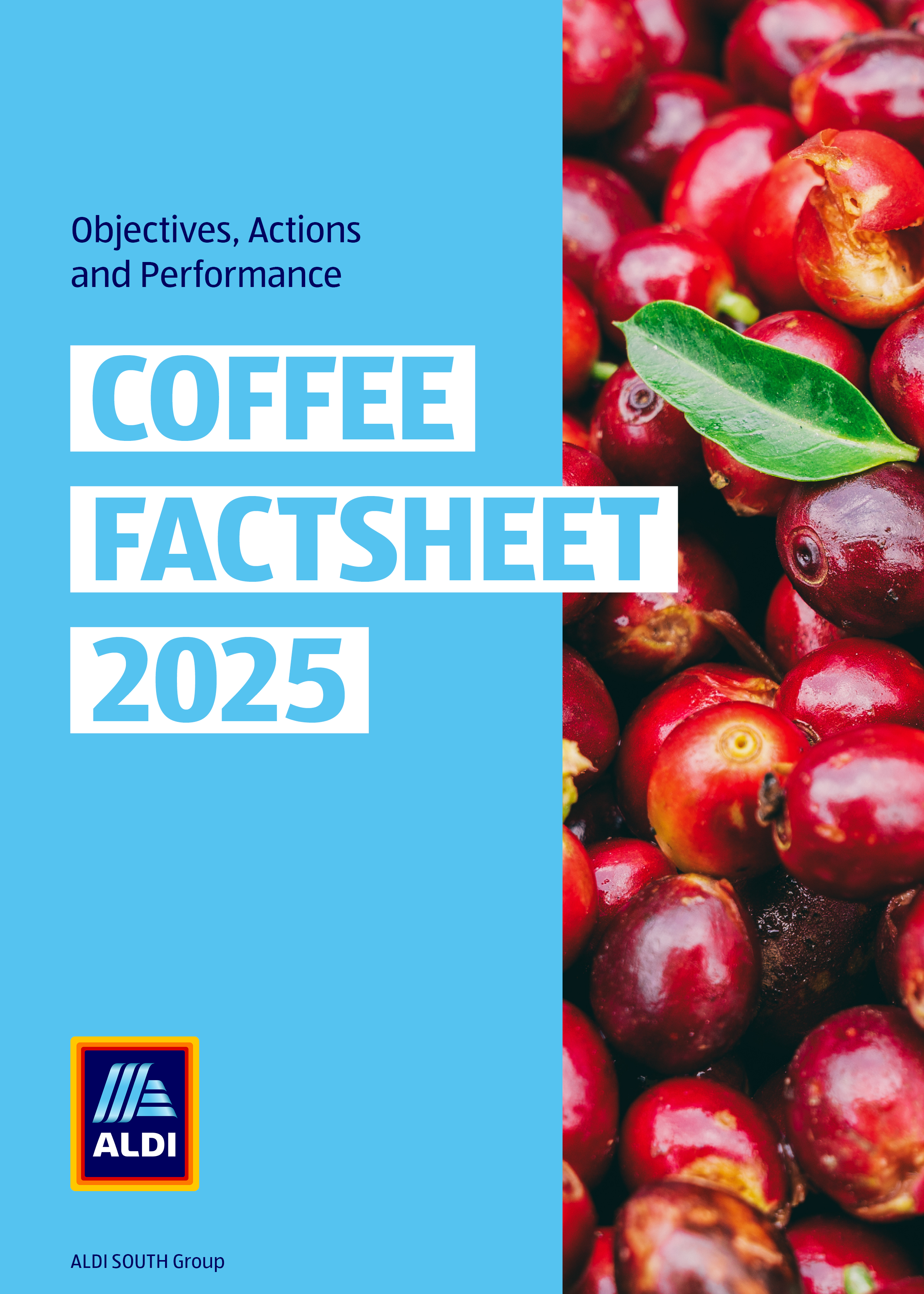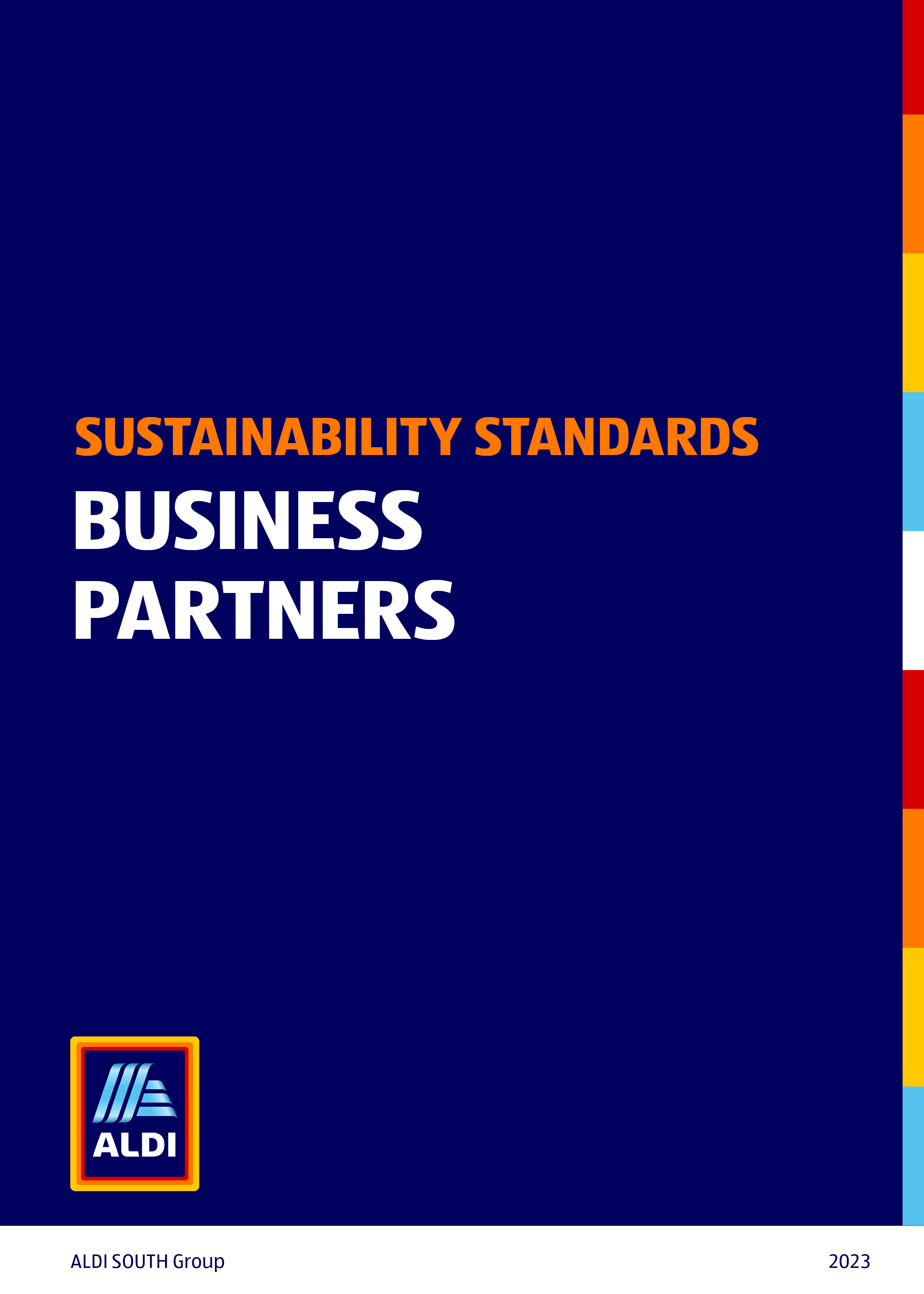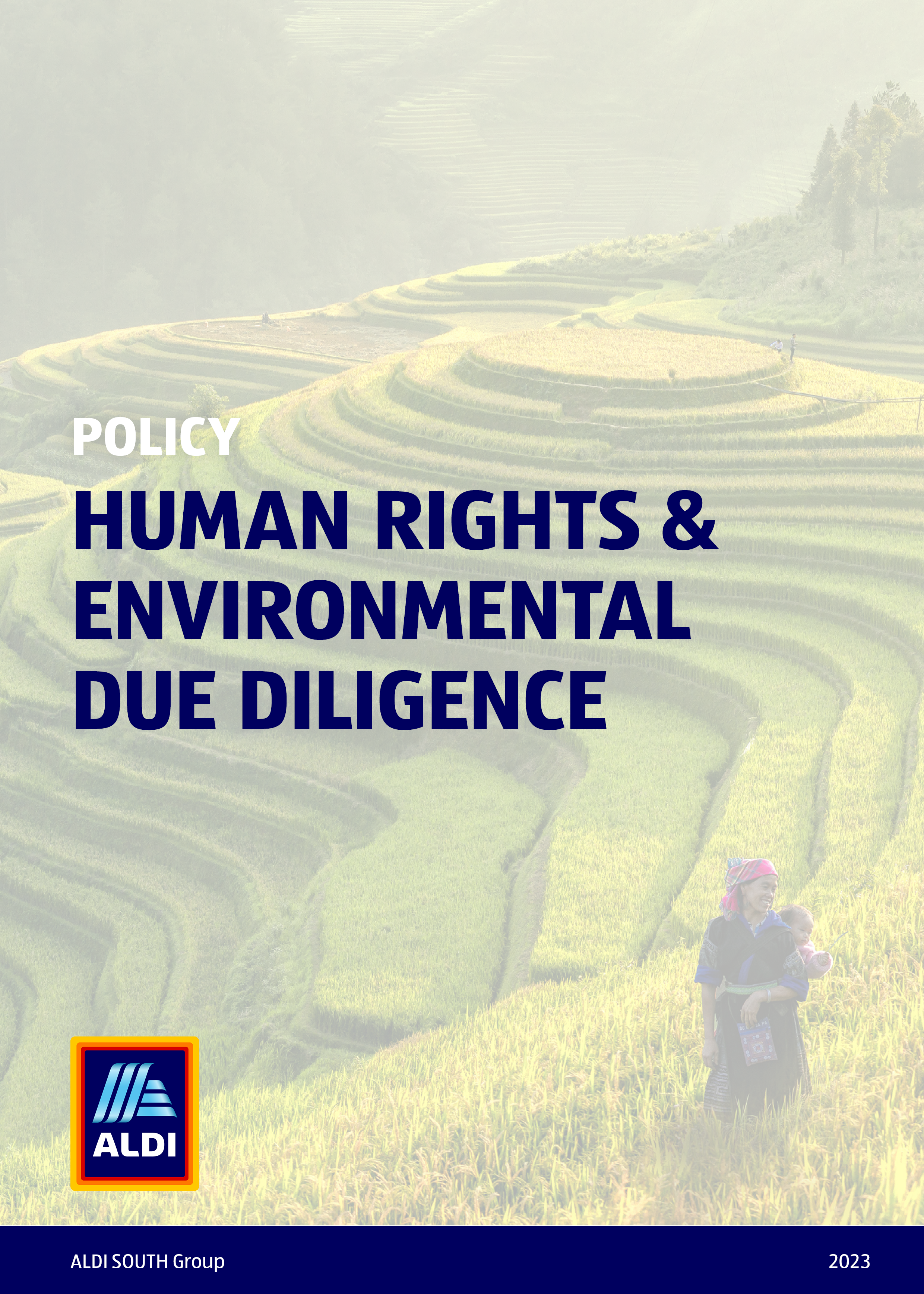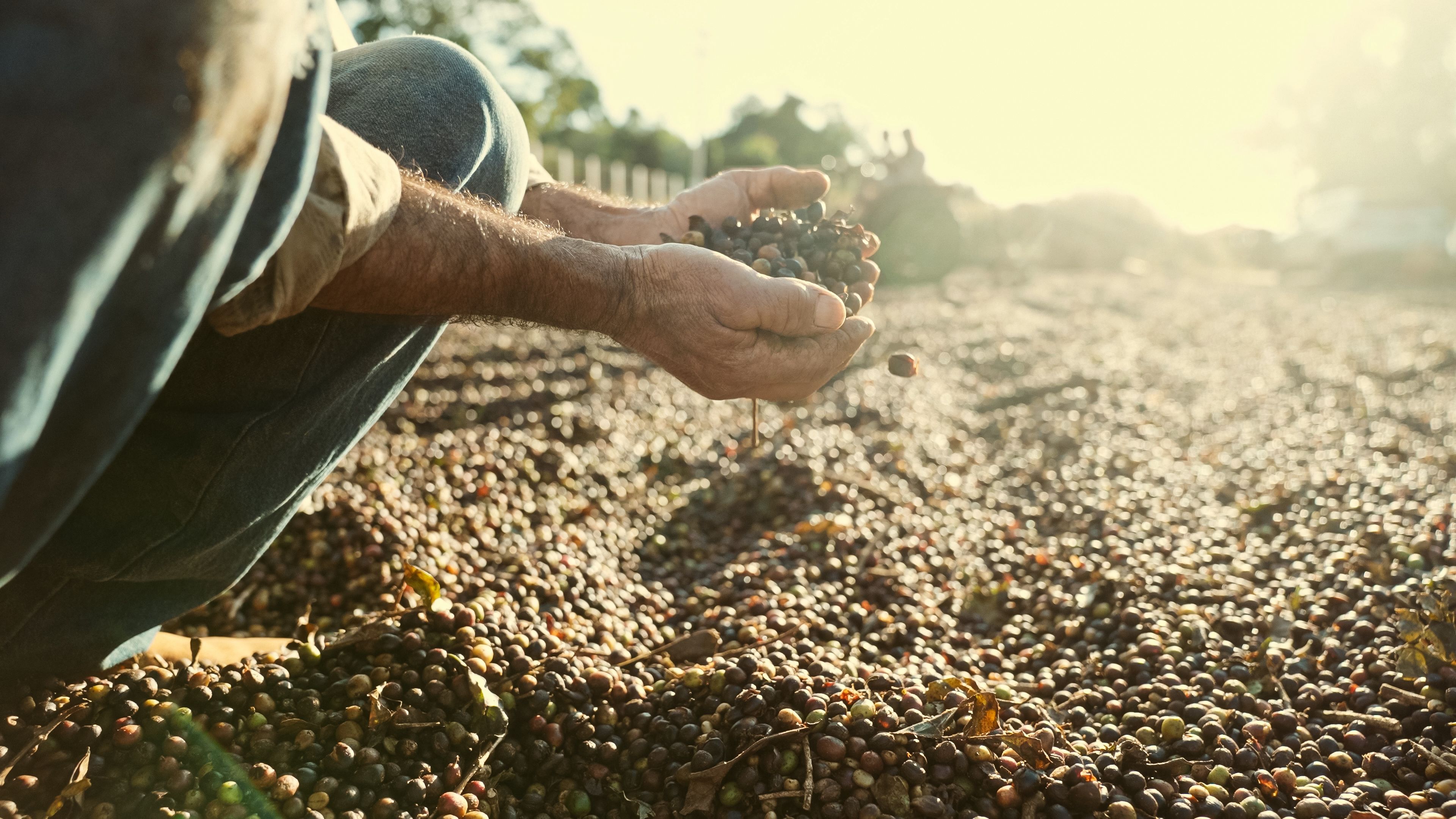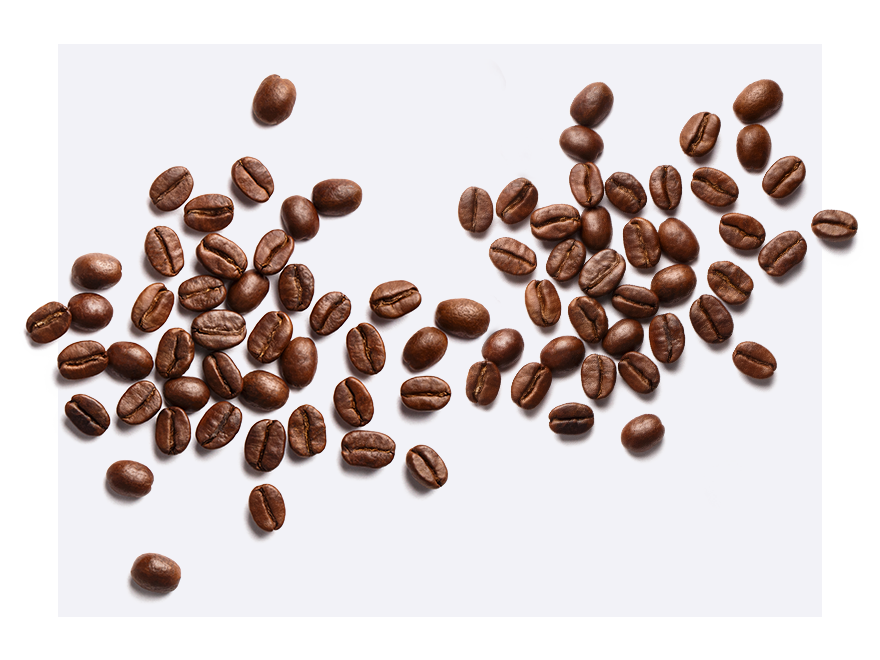
The ALDI SOUTH Group is committed to fostering fair working conditions and environmentally friendly production in the cultivation of coffee. To make our coffee supply chain more sustainable, we identify risks and impacts, strive for supply chain transparency and source independently certified products.
Doesn't everyone love a cup of coffee?
Coffee is one of the most traded raw materials. Around 178 million bags of coffee are consumed every year. People all over the world love its distinctive smell and taste and appreciate the stimulating effect its caffeine has on them. There are many opinions and facts surrounding this popular beverage: While rumour has it that coffee in Italy tastes the best, the average coffee consumption per person is highest in Finland - around 4 cups per day. But there is a lot more to know and learn about the valuable beans and their impact on people and the environment.
Sustainability challenges and changes in coffee production
Coffee is primarily cultivated by smallholder farmers in sub-tropical regions. Often, the coffee cherries are handpicked before being processed and exported. Many farmers face significant social, economic, and environmental challenges when cultivating coffee. Human rights issues like poor wages, child and forced labour, gender discrimination as well as commodity price fluctuations, deforestation and the effects of climate change affect not only them, but also their workers and communities.
To tackle these challenges, the ALDI SOUTH Group is developing specific measures to prevent or mitigate adverse human rights impacts and increase transparency of coffee supply chains. We conduct visits to key sourcing countries, participate in projects on the ground and support direct sourcing models. Sourcing independently certified products ensures that producers receive a fair price for their produce. It also helps them to adapt to climate change and fight deforestation.
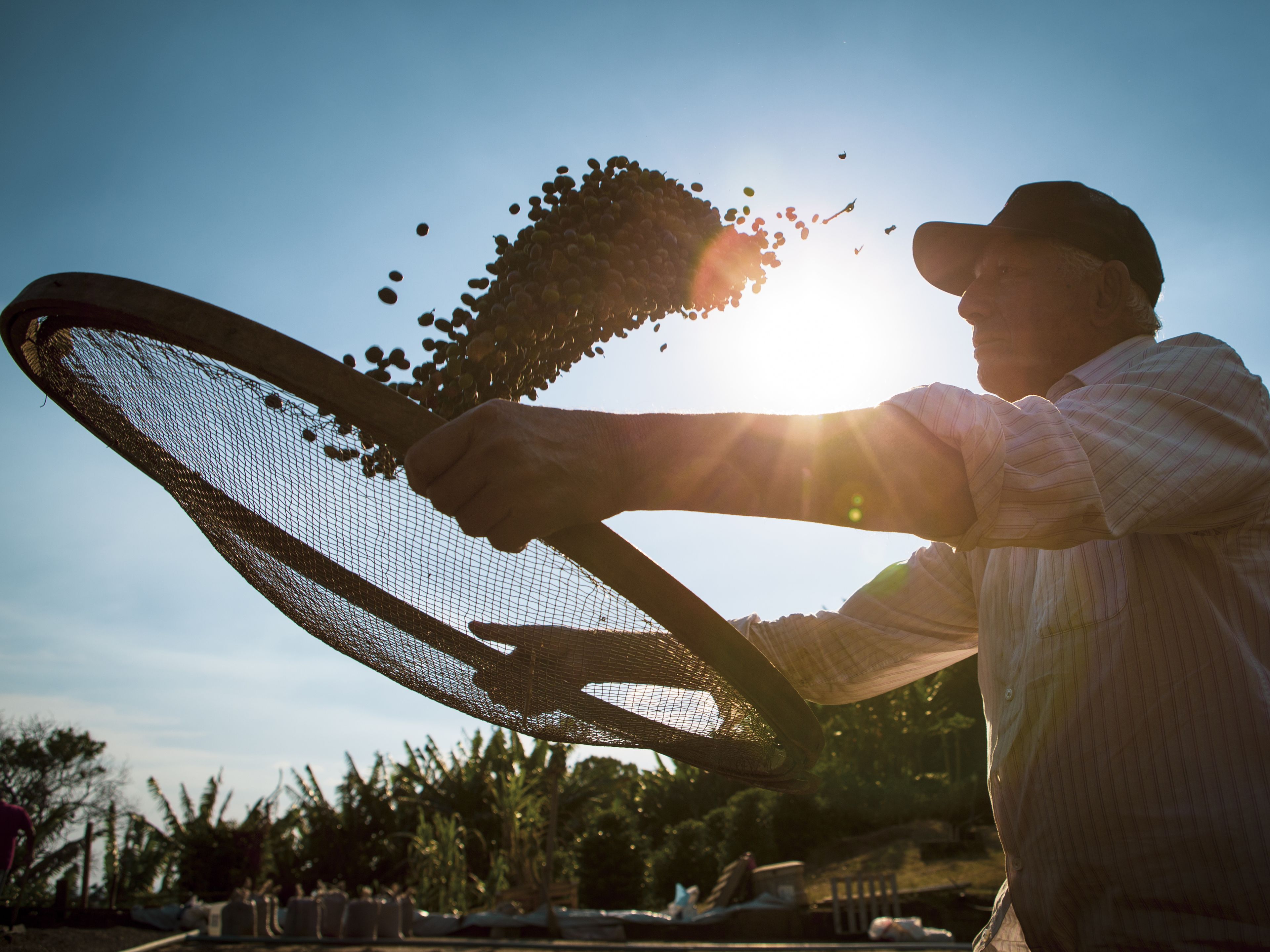
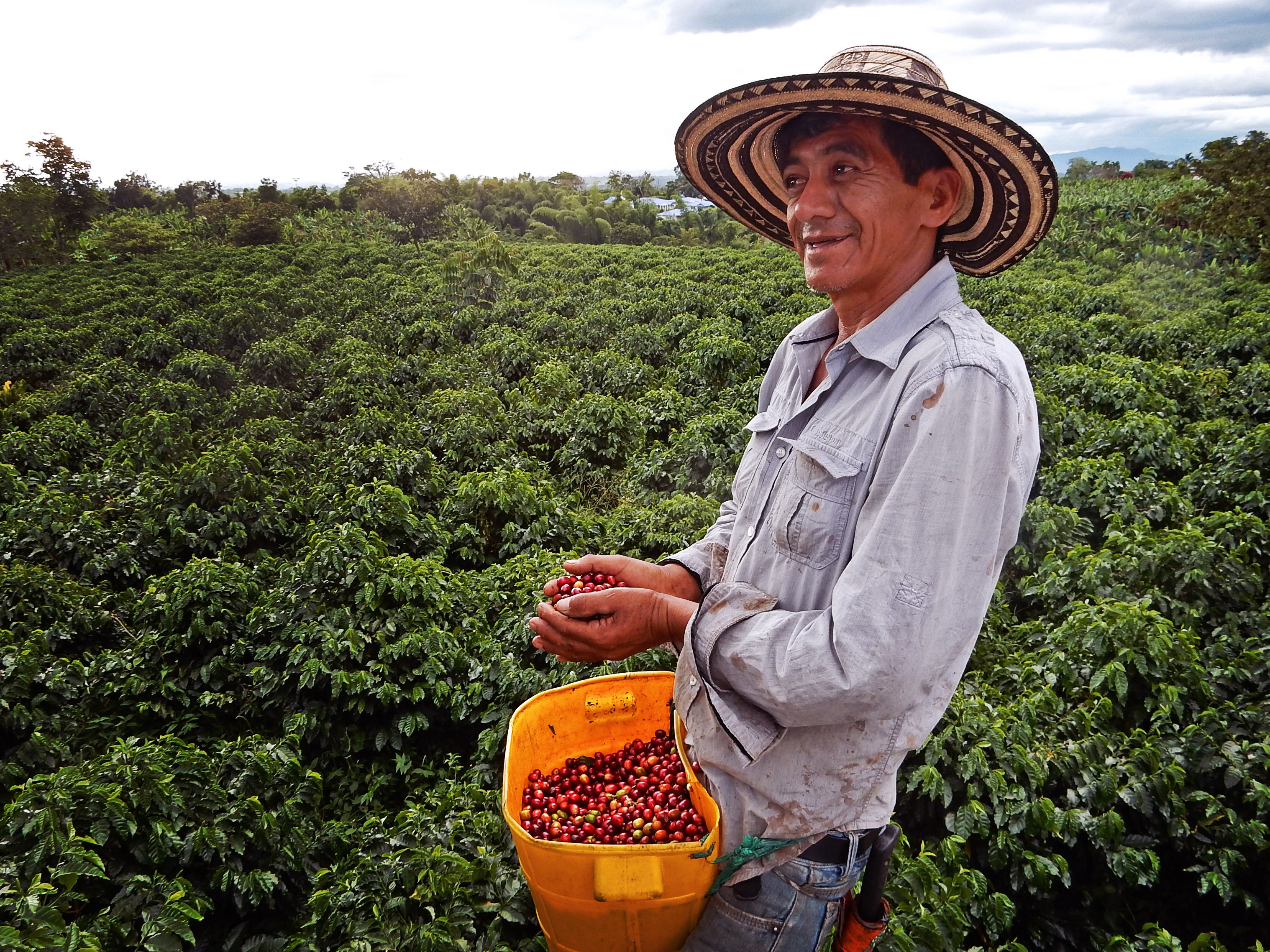
Identifying risks to drive change
In order to source coffee more sustainably, we need to understand the potential and actual impacts of our company activities and business relationships. Human Rights Risk and Impact Assessments (HRIAs) are great indicators of this. We conduct such studies for selected high-priority raw materials, including coffee. They follow a rigorous methodological approach and include extensive background research and engagement with rightsholders. Based on our findings, we formulate a human rights action plan to increase the positive impact within the supply chain.
Brazil produces more than a third of the world’s coffee. As a result, this sector is highly important to rural economeis. In 2021, we conducted a Human Rights Impact Assessment (HRIA) on Coffee from Brazil. This study helped us gain a better understanding of critical human rights issues, the organisation of the coffee harvest and the structures of the coffee producing sector in Brazil.
The results of the HRIA underscored numerous challenges, such as price volatility, environmental challenges, labour shortages and informality. Women and smallholders were identified as most vulnerable to negative impacts. Key areas in which ALDI can make a difference are supplier selection, purchasing practices and pricing.
Brazil produces more than a third of the world’s coffee. As a result, this sector is highly important to rural economeis. In 2021, we conducted a Human Rights Impact Assessment (HRIA) on Coffee from Brazil. This study helped us gain a better understanding of critical human rights issues, the organisation of the coffee harvest and the structures of the coffee producing sector in Brazil.
The results of the HRIA underscored numerous challenges, such as price volatility, environmental challenges, labour shortages and informality. Women and smallholders were identified as most vulnerable to negative impacts. Key areas in which ALDI can make a difference are supplier selection, purchasing practices and pricing.
Certified quality and responsible sourcing
By sourcing from suppliers using the sustainability standards Fairtrade, Fairtrade USA, 4C EUDR, and Rainforest Alliance, we can reassure our customers that we are supporting coffee-growing communities and protecting biodiversity. Certified products indicate high standards of sustainability and quality.
Find out more about our coffee policies, initiatives, and projects. The Coffee Factsheet provides information about the ALDI SOUTH Group for benchmarking enquiries.
